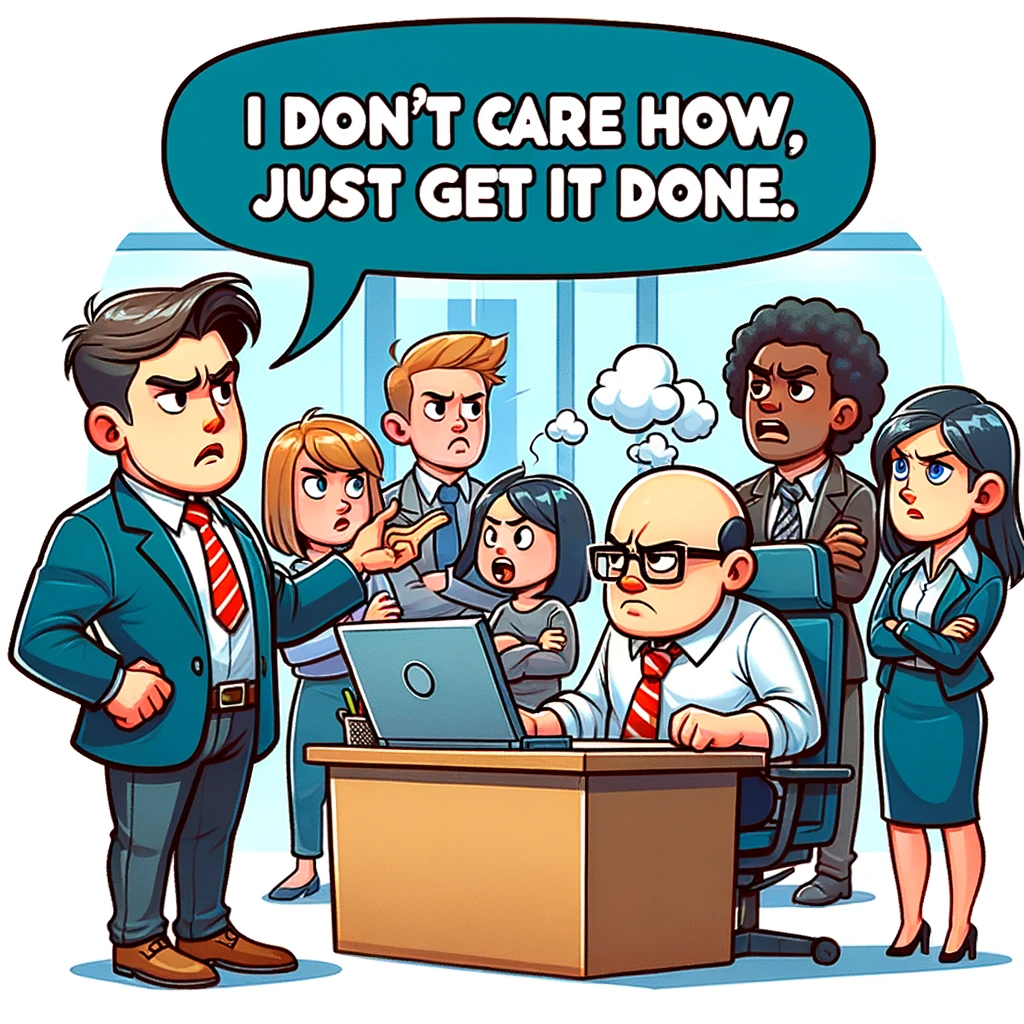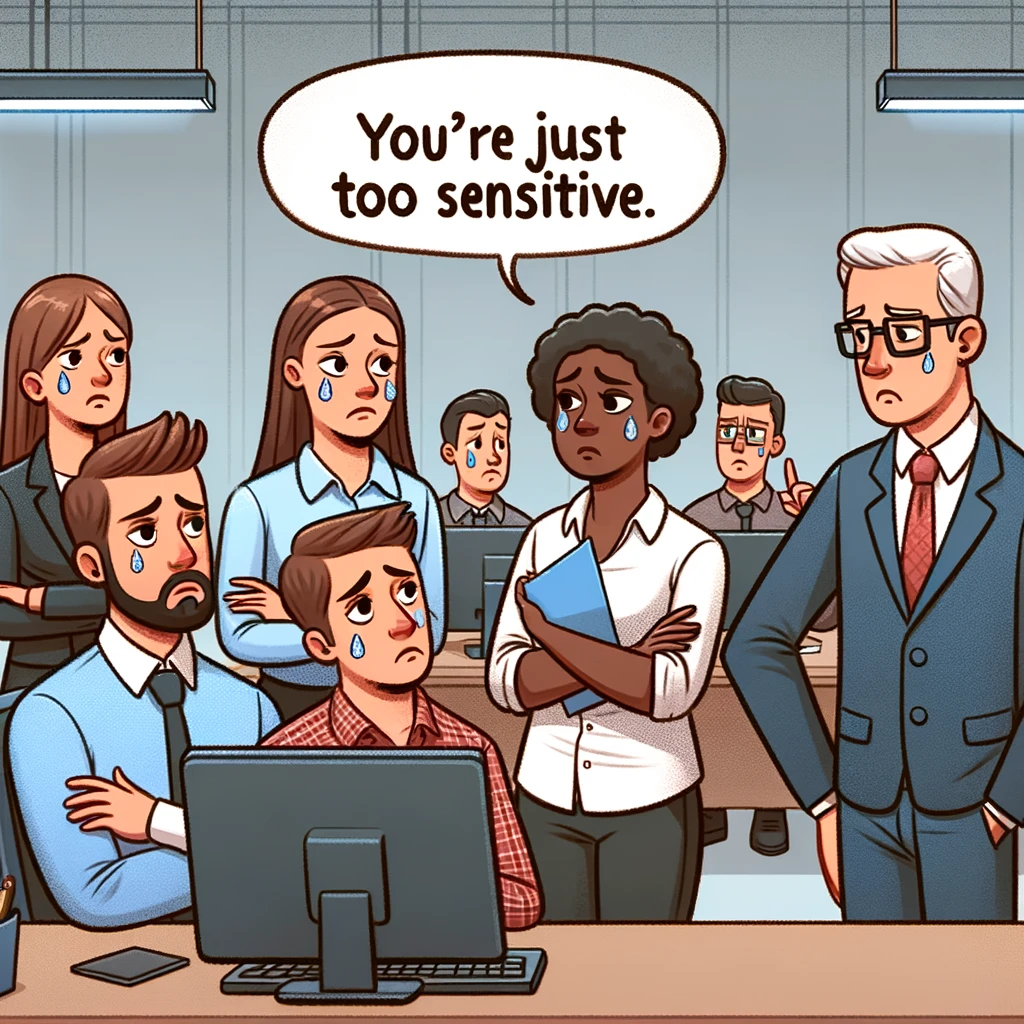Estimated reading time: 4 mins
In the modern workplace, the dynamic between employees and their bosses plays a crucial role in shaping the work environment. While most bosses strive to maintain a professional and supportive rapport with their staff, there are certain phrases and remarks that, if uttered, can undermine this relationship. Here, we explore the things your boss should never say to you and discuss the impact these words can have, providing insights for both employees and managers to foster a healthier workplace culture.

1. “I Don’t Pay You to Think”
This is one of the most disrespectful things your boss should never say to you. This phrase is a classic example of how not to inspire creativity or initiative. In today’s fast-paced work environment, businesses thrive on the innovative ideas and problem-solving skills of their employees. When a boss makes such a statement, it not only belittles the employee but also stifles creativity and discourages them from contributing valuable insights.
2. “You’re Lucky to Have a Job”


This remark, often used in times of economic uncertainty, creates an atmosphere of fear and insecurity. While it’s true that job markets can be competitive, this shouldn’t be a tool for coercion. A good leader will motivate their team through encouragement and recognition, not by instilling fear of unemployment.
3. “That’s Not How We Did It at My Old Company”
Constant comparisons to previous workplaces can be both frustrating and demoralizing. It suggests a lack of respect for the unique processes and culture of the current organization. Successful bosses understand the importance of adapting to new environments and valuing the practices that are already in place.
4. “I Don’t Want to Hear ‘It Can’t be Done'”
This phrase can be particularly problematic and, of all the things your boss should never say to you, is very risky. While it’s intended to encourage a can-do attitude, it can inadvertently dismiss legitimate concerns, especially when it comes to workplace safety. Effective leaders should foster an environment where employees feel safe to voice challenges and collaborate on finding solutions.
5. “You Should Work More Like [Another Employee]”
Comparisons between employees are rarely productive. This approach can create unnecessary competition, resentment, and a sense of inadequacy. A more constructive method is to address specific areas of improvement with the employee, focusing on their individual strengths and weaknesses.
6. “That’s a Stupid Idea”


Open communication is key in any business, and part of that is being able to share ideas freely. When a boss responds to a suggestion with outright dismissal or ridicule, it can shut down future communication and innovation. Constructive criticism is vital, but it should be delivered with respect and encouragement.
7. “You’re Just Too Sensitive”


This statement is often used to invalidate an employee’s feelings or concerns. It’s crucial for leaders to create an environment where employees feel their concerns are taken seriously. Emotional intelligence in leadership involves understanding and respecting the feelings of team members.
8. “Don’t Think About Going Anywhere Else”
While this might be said in jest or as a compliment, it can also come across as possessive and controlling. Employees need to feel that their career growth is supported, even if it eventually leads them elsewhere.
9. “I Don’t Care How, Just Get It Done”
This phrase can be particularly troubling, especially when the task at hand involves ethical or legal considerations. It suggests a disregard for proper procedures and can place employees in uncomfortable, if not outright unethical, positions.
10. “You Should Be More Like Me”


Probably the most narcissistic of the things your boss should never say to you. A boss who expects their employees to mirror their own style or approach can create an oppressive and uncreative work environment. It’s important to appreciate diverse working styles and strengths, understanding that diversity in approaches can lead to a more dynamic and successful team.
How to Respond to the Things Your Boss Should Never Say to You
If you find yourself on the receiving end of such comments, it can be challenging to know how to respond. It’s important to maintain professionalism and try to address the issue constructively. If possible, have an open and honest conversation with your boss about how their words affect you and your work. In situations where this isn’t feasible or if the behavior continues, consider speaking to human resources or a higher authority within the organization.
For bosses and managers, it’s crucial to be mindful of the impact your words can have. The best leaders inspire, motivate, and respect their team. This includes being open to feedback and continually working on improving communication skills.
In conclusion, the phrases highlighted here represent more than just poor communication; they reflect a deeper issue in the management-employee relationship. By recognizing and avoiding these statements, both employees and bosses can contribute to a more positive, productive, and respectful workplace environment. Remember, the key to successful leadership lies in communication that is respectful, encouraging, and inclusive, fostering an atmosphere where every team member feels valued and heard.
